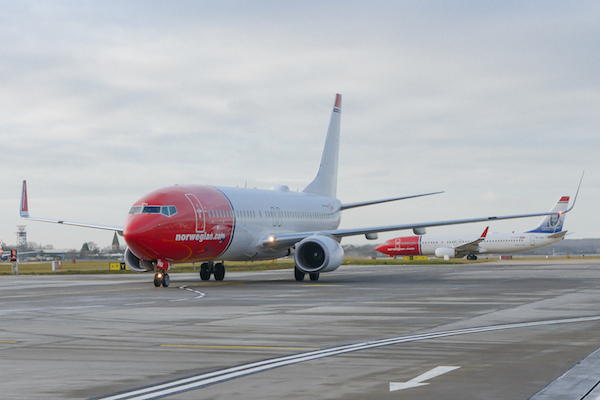Norwegian Air has reported a record-breaking financial performance, driven by its strategic fleet management. The airline’s ability to adapt to seasonal demand has been a cornerstone of its success, showcasing resilience and operational excellence.
Pre-tax profits for the airline reached NOK 1.8 billion (£135 million) in 2023, underscoring effective capacity management and fleet operations. With plans to expand its fleet for the summer, Norwegian Air is set to continue its growth trajectory and enhance its market position.
Record Financial Performance
Norwegian Air has achieved unprecedented financial success, reporting a record pre-tax profit of NOK 1.8 billion (£135 million) for 2023. This accomplishment is attributed to the airline’s strategic fleet management and reduction of capacity during the quieter winter months. Notably, their fourth-quarter profit amounted to NOK 208 million, showcasing the company’s ability to adapt and thrive in varying market conditions. The airline anticipates further growth with an operating profit expected to range between NOK 2.5 billion and NOK 3.2 billion in the upcoming year.
The airline’s fleet currently comprises 87 aircraft, including 20 advanced Boeing 737 Max 8s, which reflects their commitment to modernising their operations. Passenger numbers in the final quarter increased by 100,000 compared to the previous year, reaching 4.7 million. This growth aligns with an improved load factor of 84.4%, despite a 32% reduction in capacity due to seasonal demand adjustments.
Challenges and Opportunities
December presented challenges due to winter weather impacting the airline’s punctuality at major airports. However, with relentless efforts, Norwegian Air ensured most passengers were able to travel home for the festive season. While these obstacles tested operational resilience, the airline remains focused on sustaining customer satisfaction and operational excellence.
Looking ahead, Norwegian Air highlights encouraging booking trends and a more extended booking curve, providing greater visibility into future operations. This positive outlook supports the airline’s decision to maintain reduced winter capacity, with plans to increase it as the busy summer season approaches.
Fleet Expansion and Strategic Growth
In preparation for the summer peak, Norwegian Air plans to increase its fleet to around 90 aircraft. This expansion signifies their strategic focus on meeting increased travel demand and optimising their route network to enhance service offering and operational efficiency.
The acquisition of regional carrier Widerøe, completed in January, marks a significant step in Norwegian Air’s growth strategy. Widerøe’s fleet of 48 mainly turboprop aircraft will complement Norwegian’s network, fostering synergies and diversification through public service operations. The merger aims to integrate decades of experience, elevating the group’s market position and capability.
Norwegian Air’s Chief Executive, Geir Karlsen, expressed enthusiasm for the integration process, emphasising the potential to enhance customer offerings through this strategic alliance. This development underscores the company’s commitment to expanding its operational footprint and establishing a more comprehensive service portfolio.
Operational Excellence and Customer Base
Geir Karlsen highlighted the vital role of Norwegian Air’s dedicated workforce in achieving operational success. Their efforts span from meticulous planning and execution of the airline’s network to ensuring high standards of service delivery. This dedication has been pivotal in building a robust operational framework that supports the airline’s ambitious growth targets.
The airline’s customer base continues to expand, thanks to its commitment to service quality and operational excellence. Norwegian Air attributes its success to the trust and loyalty of its customers, which plays a crucial role in sustaining its market position.
Strategic Outlook
The company maintains a stable outlook as it plans for future growth and expansion. Norwegian Air’s strategic decisions are driven by data and market insights, ensuring a well-informed approach to capacity management and service enhancement.
With a positive outlook for the coming year, the airline is poised to leverage its strategic advantages and fleet expansion to drive profitability and market presence. Norwegian Air’s adaptive strategies and forward-looking approach underscore its resilience in navigating industry challenges and capitalising on opportunities.
Conclusion
In conclusion, Norwegian Air’s financial success and strategic initiatives signify a promising future. Through fleet modernisation, strategic alliances, and a commitment to service excellence, the airline is well-positioned to enhance its competitive edge and operational capacity.
Norwegian Air’s adaptability and strategic partnerships are poised to sustain its growth momentum. The airline’s focus on modernising its fleet and optimising operations reflects its commitment to meeting customer expectations and achieving financial success.

